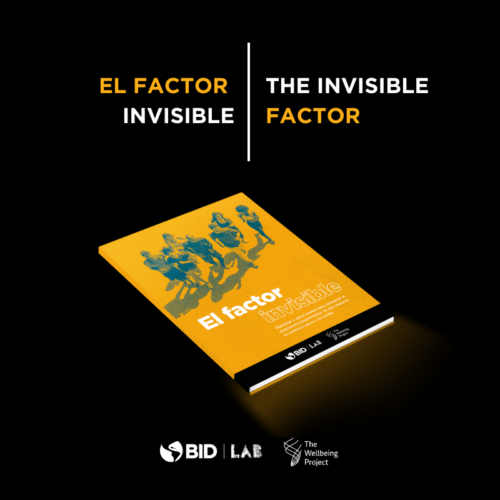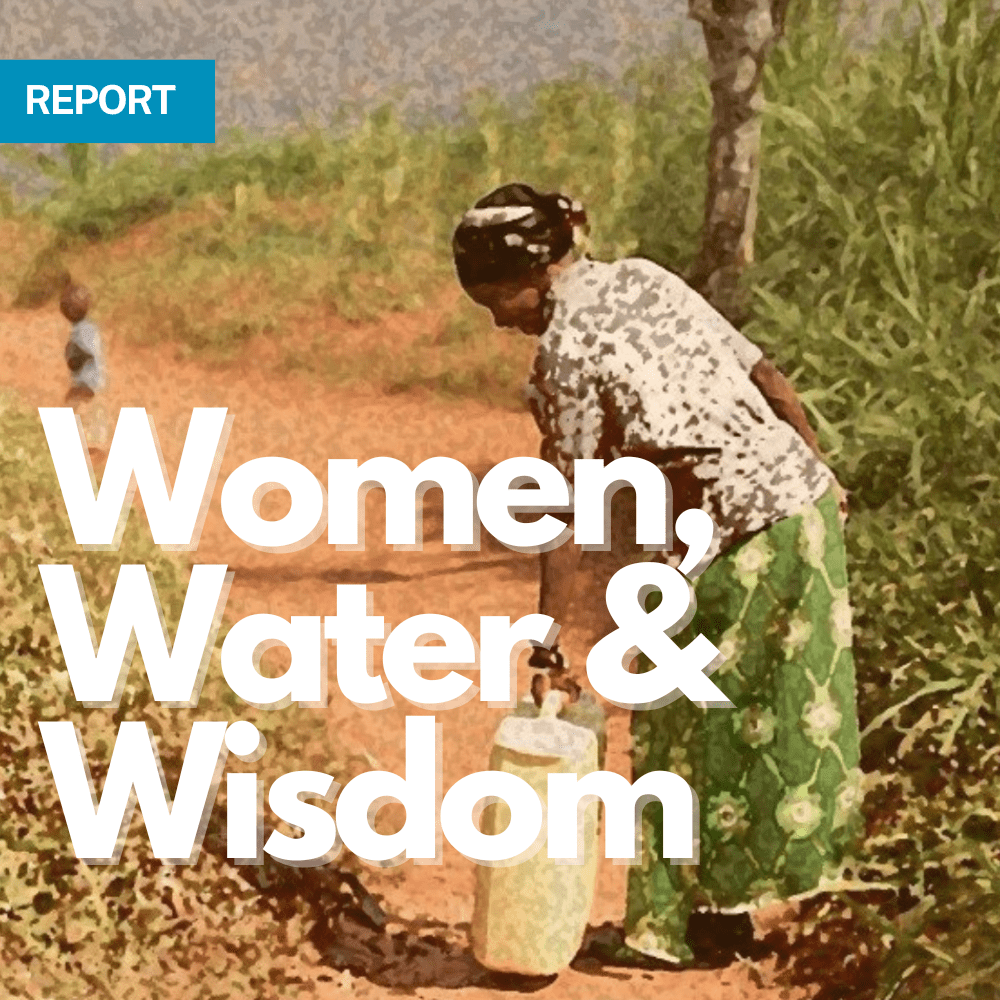Cultivating a Thriving Inner Landscape Where Our Potential Can Bloom: 7 Learnings on How Mental Health Helps Achieve Social Change and PeacebuildingCultivating a Thriving Inner Landscape Where Our Potential Can Bloom: 7 Learnings on How Mental Health Helps Achieve Social Change and Peacebuilding
Growing up in Colombia, a country with an armed conflict, filled with bombings, massacres, and displacement, I always felt the need to heal our wounds of violence and work towards the construction of peace. Fundación Mi Sangre, co-founded with songwriter and singer Juanes, has been my primary vehicle for pursuing this purpose. Since 2006, Mi Sangre has played a pivotal role in fostering systemic cultural change in Colombia by involving youth and the actors surrounding them as key contributors to personal, community, and systemic transformation. This model equips participants with life, leadership, and entrepreneurial skills, empowering them to co-create positive changes in their communities, including solutions towards peace.
Our work encompasses a multifaceted vision of leadership, emphasizing the development of both individual and collective skills. It involves nurturing awareness, empathy, critical thinking, and curiosity while fostering collaboration. We address the challenges young people face due to living in impoverished and violent environments, providing comprehensive mental health support as a valuable resource for personal and collective transformation. With this emphasis on inner work, mental health, and wellbeing, we have seen positive results not only in our participants’ lives but in the systems all around us.
From more than 15 years of service to young people in Colombia, here are some of the lessons from our journey that have now become integral to our work.
1. We can support the individual through the collective.
In dealing with trauma and other mental health challenges, some specific cases require individual psychosocial support. However, our organization and country lack the resources to provide it individually at scale. Therefore, we have integrated mental health skills into leadership programs, to offer support in a collective setting while integrating a preventive approach. These programs blend self-discovery and introspection, with safe spaces, fostering social connections and a sense of belonging. The mental health dimension of our leadership programs holds a special place in the hearts of our participants. From our retreats, I recall with emotion their warm hugs, the tears of healing they shed, and the laughter that set their spirits free, all within the safe space we helped create for them.
2. Holistic wellbeing – connecting mind, heart, body, and spirit – is essential.
Our programs prioritize a holistic approach encompassing the mind, heart, body, and spirit. Engaging the mind fosters critical thinking, self-awareness, and informed decision-making. Emotional aspects, represented by the heart, nurture empathy and meaningful relationships. Physical well-being, supported by the body, ensures energy and vitality, offering valuable wisdom through a strong mind-body connection. Nurturing the spirit, which encompasses purpose and resilience, provides inner strength to face challenges. Collectively, these dimensions empower individuals to lead authentically, while achieving significant change. Our young participants have successfully created more than 1,800 change initiatives, achieving profound systemic transformations in areas such as violence prevention, reconciliation, gender equity, migrants’ inclusion, and prevention of forced recruitment to armed groups.
3. The creative arts and nature are our biggest allies.
Creative arts and nature are central to our programs. We offer creative outlets like painting, music, and writing to serve as therapeutic outlets, hellping to alleviate stress, anxiety, and depression. Art encourages mindfulness, fostering social connections and deep interactions. Simultaneously, nature provides purpose and tranquility and teaches the vital concepts of oneness and interconnection. Whether it’s a simple walk in the park, incorporating plants, or outdoor experiences in natural settings, these holistic approaches significantly enhance our program’s effectiveness. My heart fills with gratitude when I remember a participant who shared that she had discovered the wisest counselor in nature and had never received such profound guidance from anyone else.

Credit: Fundación Mi Sangre/Alejandro Bonnells

Credit: Fundación Mi Sangre/Alejandro Bonnells
“My heart fills with gratitude when I remember a participant who shared that she had discovered the wisest counselor in nature and had never received such profound guidance from anyone else.”
4. Mental health and wellbeing have to be cultivated.
From our community engagement, it is clear to us that mental health and wellbeing are not static conditions; they are cultivated over time through a combination of self-awareness, self-care, and positive life choices. To help our communities make these choices, we have developed several strategies, including an open-source library with tools and resources, along with trainer approaches and curriculums for parents and educators, on how to develop 17 different holistic leadership skills. To our surprise, this library, originally created for our team, has more than 2,500 visitors per month, demonstrating its regular use. We also don’t limit our mental health support to our participants: since the pandemic, our full team holds weekly online meetings to share various practices, encouraging us to lead by example and embody the change we want to be in our communities.
5. We must shift paradigms around mental health.
Transforming mental health paradigms is a crucial piece to this puzzle, given historical stigma that discourages those who are struggling from seeking support. To help change this dynamic, we have launched grassroots and national campaigns at Mi Sangre to normalize mental health discussions, emphasizing the importance of open, empathetic, and non-judgmental conversations. Recognizing that change starts at the individual and community levels, we are committed to creating tailored approaches to mental health, considering differences in ethnicity, gender, and age while incorporating local wisdom. We also seek to expand the dialogue on mental health to include wider audiences: inspired by the Wellbeing Summit for Social Change in Bilbao, we co-created the Wellbeing Summit Bogotá in September 2023. Mental health was a central topic at this event, which convened changemakers from the social change, business, academic, and public sectors. We aspire to extend this initiative to other Latin American cities, further advancing this crucial agenda for mental health.


An example of posters co-designed with local communities, written in Nasa Yuwe, the language indigenous communities of Toribio, Norte del Cauca, Colombia, with an invitation to reach out to mental health support services. Literal translation: “Weaving the good life. Mental health is harmony, source of inspiration and wisdom”. Credit: Fundación Mi Sangre/Alejandro Bonnells
6. Our personal journeys influence our professional work
Leading Mi Sangre has been a profoundly personal journey.My pursuit of inner growth and wellbeing commenced 18 years ago after facing burnout during my first venture. However, this journey evolved recently when I developed a deeper understanding of trauma’s impact on my work, through participation in the Inner Development Program by The Wellbeing Project. In a retreat with fellow change agents, I was transported back to a poignant childhood memory. I overheard the tragic fate of our neighbors, the parents of children my age who were kidnapped and brutally murdered. The re-emergence of this memory unleashed profound emotions, revealing the lasting impact it had on me. This experience unveiled the roots of certain unhealthy patterns in my entrepreneurial drive – a fear of losing what I cherish, an unconscious drive to do everything to survive and protect my loved ones, and a limiting belief that I must accomplish everything now because tomorrow is uncertain. I have undergone profound transformations as a result. When leaders embark on deep explorations of their inner selves, a much deeper layer of meaning emerges about who we are, what we do, how we pursue it, and, more importantly, how we want to pursue it. I have witnessed numerous stories of leaders similarly elevating their modes of operation (and impact!) by embarking on journeys of inner work.
7. Inner work can help heal systems.
In the pursuit of positive social change and lasting peace, inner work stands as a pivotal force that transcends individual growth to mend the very systems that have been fractured by violence and turmoil. The power of inner work is not confined to self-discovery and personal development; it extends to our collective consciousness and societal structures. Mi Sangre’s work involves weaving ecosystems, bringing together a wide array of participants from the public, private, and third sectors – sometimes even including former enemies and victims – to co-create solutions. Through our methodologies, we have witnessed the potential to transcend differences, hate, and fear in order to act collectively towards peace. By delving into the depths of our inner selves, we unearth the empathy, resilience, and wisdom required to reshape these systems.
“By delving into the depths of our inner selves, we unearth the empathy, resilience, and wisdom required to reshape these systems.”
Both through my work and personal experience, I’ve learned to embrace pain and struggles as inherent aspects of life. However, I’ve also seen the potential for leading a life filled with profound meaning, even in the face of persistent challenges. Equipping leaders with the skills to address trauma, support their mental health, and enable wellbeing is essential. In doing so, we are able to help them cultivate resilience, enabling them to reach their highest human potential, foster healthy relationships, and serve life with freedom and joy.
Looking back at the dream Juares and I had 16 years ago – working towards peace – I am convinced that including inner work in our systemic approach has been pivotal in catalyzing extraordinary leadership. Without it, we may have never been able to advance the reconstruction of our social fabric, influence decision-makers, and help heal systems that impact over 2 million people who have undergone profound transformations toward peace-building and social change. I invite you to explore how mental health, healing, and inner work may transform your work in social change – with a thriving inner landscape, there’s no limit for our how our potential can bloom.
About the authorAbout the author

Meet Catalina Cock Duque
Catalina Cock Duque, a seasoned catalyst for systemic change with over 25 years of experience, is a passionate leader in sustainable development, peace-building, and social impact. Distinguished as a Young Global Leader by the World Economic Forum and recognized by Silla Vacía in Colombia, she co-founded Fundación Mi Sangre, impacting over 2 million people in Colombia. As a Co-Founder of Oro Verde and the Alliance for Responsible Mining, Catalina played a pivotal role in establishing the first global certification for artisanal gold mining, expanding its reach to over 10 countries. She holds a BA from the University of Maryland and a Master’s from the London School of Economics, complemented by executive courses in leadership and innovation from top institutions worldwide.








































































